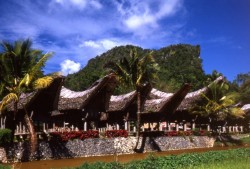There comes a time in life when many begin reorienting their priorities to a more spiritual trajectory. In numerous cultures this transition is an expected and time honored tradition for those of a certain experiential stage. Secure in their identities, their position in society and the well being of their families many begin abandoning their worldly concerns to work on understanding and pursuing the higher elements of existence. However, this is not always a joyous process spawned by personal satisfaction. In his book Embodied Spirituality in a Sacred World, (2003, SUNY, Albany,) Michael Washburn claims this transition often occurs because social and personal routine creates a sense of deep alienation which in turn stimulates a long dormant psychological realm within the human mind. For Washburn this “crossroads” stage serves as the fulcrum for a detailed examination of the process of human psychological and spiritual development from the neonatal stage all the way to full spiritual awakening.
You are invited to Read MoreArchive for the ‘Philosophy’ Category
As bees suck nectar from many a flower
And make their honey one, so that no drop
Can say, “I am from this flower or that,”
All creatures, though one, know not they are that one.Chandogya Upanishad
Virtually every spiritual system on earth espouses the existence of an original source. A source from which all existence emerges and all knowledge flows. This observation in itself is hardly profound or requires great deductive acumen. After all, if it’s here it must have come from somewhere. Both physicists and theologists are in rare accord when claiming everything and everyone must trace back to a singular starting point. Defining the nature and motivations of this original source has led to a variety of different and conflicting opinions which form the basis of the worlds formalized spiritual systems. However, closer examination of the description of the essence of the original source brings surprising unanimity. It reveals an ultimate, singular intelligence of which all are a part; a power whose essence forms and informs all within existence. Many of the descriptions of this source found in the spiritual texts of our world are exceedingly complex, others breathtakingly simple.
You are invited to Read MoreScientists of every stripe are always looking for “unitive theories.” One grand idea neatly integrating all the diverse elements of their study into a nice tidy bundle. In a world of caveats and exceptions such packages are hard to find. Fortunately, there is no shortage of ambitious souls willing to try. In two complementary books, Science and the Akashic Field and The Akashic Experience, (Rochester, Vermont-Inner Traditions,) the Hungarian Systems Theorist, Ervin Laszlo tries to integrate consciousness with the cosmos and through the process offer a startling perspective on the essence of human existence.
The Akashic Field, (or record or chronicle,) was a concept much in vogue in Theosophical circles in the early 20th century. Akasha is a Sanskrit word meaning “ether.” The gist of the theory asserts
You are invited to Read More

